
Official Edgar Rice Burroughs Tribute and Weekly Webzine Site
Since 1996 ~ Over 15,000 Webpages in Archive
Volume 8070
ED AND EARHART
BY
ROBERT ALLEN LUPTON

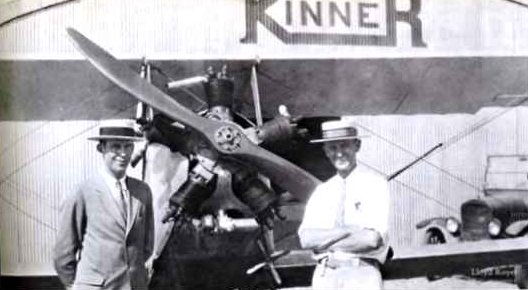
This
article is about Edgar Rice Burroughs time as a pilot, but mostly about his
airplane. Credit goes to Burroughs’s researcher, Alan Hanson, for his article, The
Fateful Flights of Edgar Rice Burroughs. This isn’t a rehash of his
excellent article, but I did read it and it was a wonderful source of
information. I’d suggest reading Alan’s article. It is available at https://www.erbzine.com/mag66/6620.html.
Burroughs
was born during the age of balloons, dirigibles, and bicycles. Cars and
airplanes were somewhere in the future.
Shortly after the Wright Brothers took to the air, Ed created his own
version of flying machines for A Princess of Mars, aircraft that were a mashup
of dirigibles, newly designed aeroplanes,
and sailing ships. But his isn’t about Barsoomian aircraft, Abner Perry’s
attempts to build and airplane, or the aircraft of Venus, or the warbirds
beyond the farthest star. This is about Ed’s personal airplane.
As the
story goes, Hulbert Burroughs was fascinated with becoming a pilot. In order to
determine how safe flying would be, Ed decided to become a pilot himself – a
decision he did not share with his wife.
Ed was
successful in becoming a licensed pilot, but Hulbert crashed on his first solo
attempt. Ed’s son in law, James Pierce, Tarzan of screen and radio, did become
a pilot and was active in the National Airmen’s Reserve, now known as the Air
National Guard, during the second World War.
In any
event, at age 58, Ed pursued his pilot license and bought an airplane, a
Security Airster, NC 13746. He promptly named it the Doodad, after the symbol
he put on the spine of his books.
I’m
always fascinated when I remember that during his lifetime, Ed went from a
horse soldier to an aircraft pilot. Along the way, he was a licensed bicyclist
in Chicago and drove an early automobile at the Chicago World Exposition in 1493. He owned several automobiles of
increasing power, reliability and speed, before he climbed into an aircraft
cockpit.
The
Security Airster was designed by Bert Kinner who created the Security
National
Aircraft Corporation to build the aircraft. The two prototypes were the
Airster S-1, which was powered by a 100 Horsepower engine designed by
Kinner, the
Kinner K-5.
After
the prototypes, the production version was the Airster S-1-A. Only twelve of
these were produced, although some sources claim that 15 were made, but my
research indicates that the 15 number includes the two prototypes and one
aircraft that was never finished. . Ed’s aircraft was of the 12 Airster S-1-A
production models. Production stopped in 1935.
In 1939, the company produced a revised
version, a variant if you will, Jimmie Goodwin, a variant with a 125-horsepower
engine, the Security S5-125. Only five
of the new design were produced and in 1942, the factory and all assets were
sold to the National Airplane and Motor Company.
The
single-engine aircraft seated two, including the pilot. It was an inch short of
24 feet in length and had a 40-foot wingspan. Empty it weighed just short of 1200
pounds and had a maximum payload of 578 pounds, the maximum weight of the
pilot, passenger, and their belongings. The payload would be reduced by
altitude and temperature. The craft had
a maximum speed of one hundred miles and hour and a 300-mile range. It wasn’t
pressurized and the maximum flight ceiling was 14,000 feet.
Bert
Kinner, who was born in Iowa, worked as a streetcar operator, a barber, a taxi
driver and a car dealer before becoming an aircraft designer. Obvious
qualifications. While managing Kinner
Field, the first city owned airport in LA, he hired Anita ‘Neta' Snook. Known
as Snooky, she was a flight instructor, test pilot, and a mechanic.
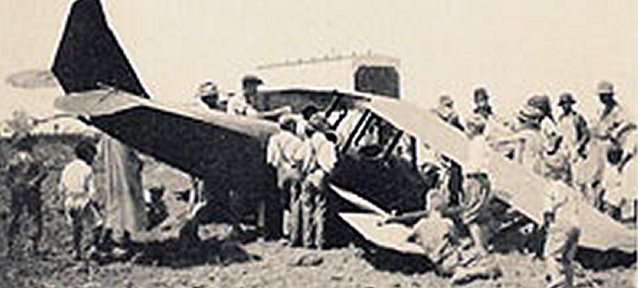
The
preceding photograph is of Amelia Earhart’s crash, not Hulbert’s.
In December
1920, Kinner Field's most famous student, Amelia
Earhart, arrived. She took her first flying lesson with Neta Snook.
Earhart bought the first prototype Kinner Airster for $2,000. It was bright
yellow and she named it the "The
Canary." The prototype was considered very underpowered, but it provided
Earhart with valuable flight time. Unfortunately, Amelia couldn’t raise the
money to compete the purchase and never paid more than the initial
deposit. She and Kinner made a deal to
keep Airster on hand as a demonstration
aircraft in exchange for upkeep and hangar fees.
Earhart
soloed in the Airster, and after Neta left Kinner field to get married, Earhart
stayed on, and continued flying. She did crash it once. In October 1922, the
Kinner Airster was used to set a world high altitude record of 14,000 ft
for women pilots, the first of the many records set by Earhart.
While
there is no record of when Earhart actually completed the purchase, she must
have, because she later sold “The Canary". Eventually she raised the money to
purchase a second Airster. Three of the company’s aircraft were owned by
Burroughs or Earhart.
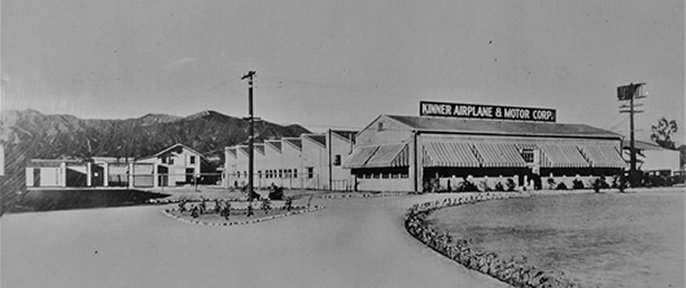
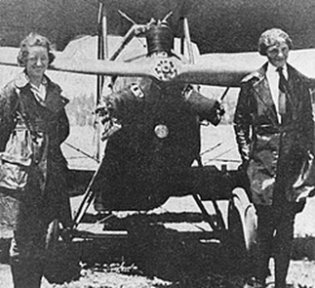
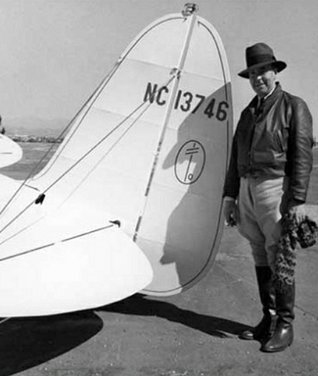
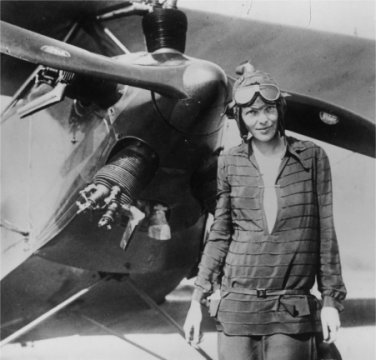
Now,
here’s the thing. Earhart’s Airster, the “Canary,” was the demo aircraft when
ERB bought his airplane. Security did not stock airplanes like a car
dealership. You ordered an aircraft and they built it. It’s almost
inconceivable that ERB did not take his demo ride or rides in the “Canary.”
Arguably the world’s most famous author and the world’s most famous pilot, both
hanging out at Kinner Field and both probably flying the same aircraft.


![]()

![]()
BILL
HILLMAN
Visit
our thousands of other sites at:
BILL
AND SUE-ON HILLMAN ECLECTIC STUDIO
ERB
Text, ERB Images and Tarzan® are ©Edgar Rice Burroughs, Inc.-
All Rights Reserved.
All
Original Work ©1996-2025 by Bill Hillman and/or Contributing Authors/Owners
No
part of this web site may be reproduced without permission from the respective
owners.